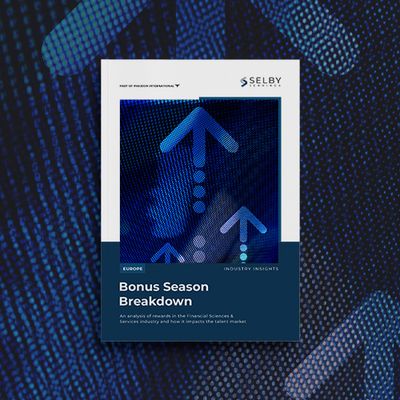risk-management
How to Decide if a Job Offer is Worth Taking
Landing a job offer is a great achievement and it can be tempting to grab it with both hands, particularly if you’ve been focused on the interview process for some time. Yes, crafting CVs and cover letters, researching companies and positions, preparing presentations, and attending interviews are all time and energy consuming parts of the process, especially for senior-executive level roles, but there are important considerations to be made before you make a concrete decision on one offer.You spend the majority of your day at work, and even outside of your time on the clock, your job will inevitably have an impact on your personal life, too, and even that of your family. For example, the length of your commute, the number of holiday days, and the flexibility the role offers will all affect your quality of life, and so it’s imperative that you accept a job offer for all the right reasons. Even your dream job role will have positives and negatives, and it is worth taking some time to consider the offer and what it means for your finances, your work-life balance, and your future. In this guide, we’ll walk you through the questions you should ask to help you decide if a job offer is worth taking, and how to decide whether to accept, reject or negotiate the role offered. If you are in the fortunate position of being able to consider several offers, this article can also help you with making your choice on which offer to accept. Am I happy with the salary offered?One of the headline aspects of a job offer to be considered is the salary on the table. Depending on where you are with your career, the salary should reflect your skill set and general value within the current labor market, and should ideally be at least 10% above your current salary package, otherwise the move may not be worth it. Use websites such as Glassdoor to research equivalent salaries and make sure you’re getting offered the right amount. Obviously, there is so much more to consider when thinking about a job, but if the salary is lower than you expected, you may want to consider negotiations. If the base salary is lower than you would like, your overall salary may be boosted with bonuses and/or commission, or you may be offered a salary package with perks such as subsidized health care or childcare. This is an opportunity to work out a package that suits you as an individual.The role may offer you a salary that is initially disappointing but puts you on a guaranteed and exciting career track with a larger reward in the near future. Also consider the satisfaction of the job if you are offered a big step-up in pay. What demands will this new role put on you? While an impressive new wage can be attractive, it may weigh lightly against the additional stress and pressure that comes from an increase in responsibility. It’s good to be challenged from a new role, but not at the expense of your long-term happiness, so it’s important to find the balance between financial compensation and quality of life.What are the benefits?Alongside the salary, look at the break down of benefits and perks offered by the new position. If these aren’t outlined fully in your job offer, request the full details from the hiring manager. Some companies offer bumper benefits packages, which can be considered as valuable as your initial salary package. Look at the following benefits when evaluating a job offer: Annual leave - is there a generous allowance for paid time away from the office? Does the role have a good pension? What is the employer contribution to your pension? How good is the health insurance provided by the company? What does it cover, specifically? Does the role provide large money-saving perks, such as a company car, subsidized childcare, or paid memberships?How will the role affect my work/life balance?Work/life balance is extremely important not only to your happiness, but also to your health, relationships, and even your success within your role. Consider the responsibilities of the role - are the day-to-day tasks stimulating and satisfying to you? Do they encompass the positive aspects of your previous role where you experienced success and growth? Will they challenge you to develop new skills/areas of expertise or are the tasks simply outside of your expertise or interests? Think of how the job will slot into your life, and how much control you will have over your work/life balance within the role. A large element to consider is whether the role offers flexible working, which may be particularly important if you have children. A role that allows employees to build their hours around their family obligations and provides regular opportunities to work from home can be far more appealing than a role that pays more but provides no flexibility. The commute also needs to be considered when evaluating a role for work/life balance. Is the role in a hard-to-reach location? Will you be dealing with daily traffic jams? Is the role reachable by public transport? How much will the commute cost in train tickets or petrol and parking? A job that requires a lot of travel can be exciting but can have a negative impact on your work/life balance as it can be tiring, costly, and time-consuming. If a lot of the role is spent ‘on the road’, you will need to consider how this will affect your quality of life long-term.Am I a good cultural fit?Hopefully, during your application and interview process, you will have had a taste of the company culture at your potential new organization. Review the business’s employer branding materials, their social media accounts, and testimonials on sites such as Glassdoor for more information. Your work environment is one of the most important factors to consider when deciding whether to accept a job offer. You will be spending around 40 hours a week there, so think carefully about whether that prospect makes you excited or anxious. Regardless of the job title, salary, or perks, accepting a job offer from a company where you will be glad to spend your time is what’s most important to your health and happiness.Lean into your intuition and consider any potential red flags you may have identified. In some instances, it may be appropriate to request another visit to the office to talk to team members before saying ‘yes’ to the offer, or you may request another more informal chat with your manager to ask any lingering cultural questions. This may help you to get a good sense of the types of personalities within the company, and find out how the office operates and where you would fit in. Are teams encouraged to work collaboratively, or do they tend to work as individuals? Is there good camaraderie within the team? How do they support each other? Ask for examples to get the best understanding. Can I work well with my peers?The people you work with, and indeed those you report to, can make or break a role. It is vital to your overall enjoyment of your job that you are working with people who bring out the best in you, as well as a team that will be receptive to your attempts to bring something new and beneficial to the company.When considering a job offer, try to find out who you will be reporting to and who will be reporting to you. It is likely that the former will have been involved in the hiring process, but if you haven’t met them, you may want to arrange a meeting or a phone call to discover more about their leadership style while you consider a job offer. Ask what would be expected of you in terms of delivery and performance and run through a typical week within your team. If the ideas and working style of those around and above you don’t run alongside your own you may want to reconsider taking the job offer and keep on looking.Does it advance my career?You’re already on the job hunt, so your career progression will naturally be on your mind at this point. You may have an offer for a role that advances your career immediately, but the move could be a bad decision in the long term. Does the current job offer allow for further growth of your skills and talents? Or are you moving into a position that may lack the challenge you need in order to develop? It’s a good idea to investigate the training and networking opportunities provided by the role. Do you have time in your role to learn new skills, or attend sector conferences that will keep you informed of trends in the market? Does the business have a budget reserved for career development and further education of its employees? LinkedIn is a good website to research this. You can look into the career paths of current and former employees and see how those within the company have progressed either internally or through new roles. You may want to reconsider a job offer for a role where there is little progression or growth, or from a company that has no immediate growth plans, or any career development programs. On the other hand, you may wish to include this in your negotiation process.Am I happy I got the job?Now you have considered the salary, the benefits, your work/life balance, the culture, your colleagues, and your career development goals, the final element to consider is your general ‘gut feeling’ when it comes to considering the job offer. Are you ecstatic to get the offer, or do you have your reservations? If you are reading this, there’s probably a reason you are taking your time to make a decision. Of course, there may be more personal factors at play that may incentivize you to accept a role quickly, but it is worth taking your time to consider how the prospect of starting this new position truly makes you feel. No job offer will be perfect, but it is important to trust your gut when an offer comes through, even if it just sparks some more honest negotiations. If you are unhappy with the lack of flexibility within the role or have doubts about opportunities for development, it may be better in the long-term to turn down the offer. Trust your instinct and intuition. If something is telling you taking the role is a bad idea, write up a list of pros and cons and weigh them up. Moving jobs is a big decision that affects many aspects of your life and steers your future. A bad gut feeling may be leading you to something better suited.
Read More










